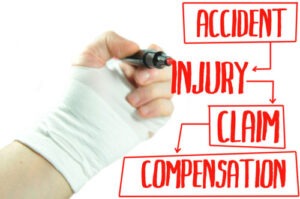
If you were in an accident, bitten by a dog, or suffered an injury as a result of someone else’s negligence, you can file a personal injury claim against the negligent party or parties. However, you need to file your claim before Florida’s personal injury statute of limitations expires.
What is a Statute of Limitations and How Does it Impact a Personal Injury Case?
Statute of limitations is a deadline, set by the state when filing different lawsuits. Every state’s limitations vary, but most states have statutes of limitations for personal injury cases. Personal injury revolves around negligence, and you will need to prove that your injuries were caused by someone else’s negligence.
If you try to file a personal injury claim after the statute of limitations passes, chances are, the case will be dismissed.
There are some exceptions, but they’re very rare.
You need to begin working with a lawyer who specializes in personal injury as soon as possible. The statute of limitations is strict, and the deadline will begin ticking down on the day your injury occurs.
Working with a lawyer increases your chance of being able to:
- Speak to witnesses
- Gather evidence
- Meet all deadlines
You need to meet Florida’s statute of limitations to have your case go in front of the courts.
The longer you wait, the harder it will be to gather evidence and the less reliable the evidence will be.

Expect More, Receive More: Legal Support That Feels Like Family
Florida’s Personal Injury Statute of Limitations
Generally speaking, In Florida, you have four years after the date of an accident to get your lawsuit filed. If you don’t file your lawsuit within this time, the court will likely refuse to hear your case.
It is also important to note that if your injury involves a government agency or employee, the statute of limitations is shorter.
The four-year period is strict unless in certain circumstances, including child exploitation or child abuse. States may also grant discovery of harm exceptions.
What is Discovery of Harm Exceptions and When do They Apply?
The discovery rule will be followed in the event that your injury occurs slowly over time. A person in an automobile accident may have an immediate injury that is undeniable and easily noticed. For example, a broken arm is difficult to ignore, and a judge would not accept that you didn’t realize the harm was present before the statute of limitations expires.
If you didn’t know of the progression of the injury until years later, the statute of limitations would begin on the date that you became aware of the injury.
The discovery rule has its own complications:
- It’s more difficult to gather evidence the longer the time is between the injury being discovered and the injury occurring.
- The defense will argue that you “should have known” of the injury.
The court will also consider the reason for the delay. If you ignored the pain in your back and continued on your normal routine, there’s a chance that your actions led to the injury progressing. In this case, the claim may be dismissed because of your negligence and not having your back examined.
Your lawyer will work on your behalf to prove that you didn’t know of the injury and that the discovery occurred after the initial incident.
Exceptions to Statute of Limitations
A person who is legally “incapacitated,” such as a person in a coma following a slip and fall or car accident, is an exception to the rule. You’re unable to file a claim, so the statute of limitations can be paused since you’re unable to file a claim.
Every state’s laws are different, but it may be possible for a lawyer to seek an exception if you were:
- Mentally disabled
- Medically disabled
- A minor
- Declared insane
You have a right to seek compensation if you’re injured due to the negligence of another party. Settling your claim is a top priority, and it’s up to you and your legal counsel to ensure all deadlines are met.
Filing a lawsuit will pause the statute of limitations and allow for negotiations and a lawsuit to follow if necessary.
Complete a Free Case Evaluation form now
Working with a Personal Injury Lawyer
An experienced personal injury lawyer will evaluate your case, determine if your case is worth pursuing, and will take on the responsibility of making sure personal injury statute of limitations is met.
Working with a lawyer as soon as possible can ensure that all deadlines are met, and evidence is easier to gather to strengthen your case.
Call or text (239) 334-3933 or complete a Free Case Evaluation form






